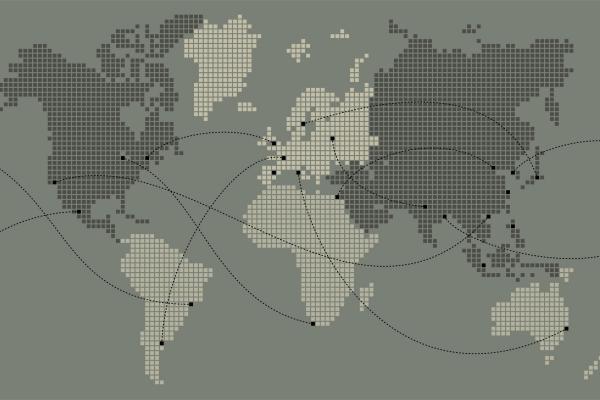IN MID-DECEMBER, trade talks involving almost every country in the world closed in Nairobi. Did anyone hear the door slam?
Previous negotiations of the World Trade Organization (WTO) have been sites of furious protest and resistance by tens of thousands of people, including small farmers, trade unionists, anti-globalization activists, and faith and development organizations. (The 1999 negotiations were called the “battle in Seattle” for good reason.)
While the Nairobi meetings held some similarities to previous WTO negotiations—fears that no agreement would be reached and entrenched positions by the global North and South—other aspects were entirely different, including the way civil society is organized for engagement.
In the last two years, we have witnessed the rise of megaregional trade deals. The Transatlantic Trade and Investment Partnership (T-TIP) between the U.S. and the European Union is one example, but there are many others under negotiation. The Comprehensive Economic and Trade Agreement between Canada and the E.U. has been finalized and the text is awaiting parliamentary agreements some time in 2016. The Trans-Pacific Partnership (TPP) between the U.S. and many Pacific Rim countries was agreed upon in October 2015 and is waiting for governments to ratify it. The Trade In Services Agreement is in its 15th round of negotiations involving more than 50 countries.
These deals have many similarities. They are designed to open up new markets for global corporations and create the conditions for them to be as lucrative as possible. Perceived “barriers” to trade, such as fair labor standards, food safety regulations, and publicly provided services, are to be reduced or removed.
Additional legal protections to safeguard corporate profits from the effects of national government policies (such as raising the minimum wage or introducing plain-packaging on tobacco products) will be introduced. And, of course, the negotiations are held in secret, away from democratic scrutiny.
The rise of these megaregional trade deals is a direct response by neoliberal or “free market” capitalist governments that have become frustrated with the impasse in negotiations at the WTO. For more than 15 years, the WTO has failed to make progress on the 2001 Doha Round negotiations. Unable to secure agreement of the 162 countries that make up the WTO, the European Union, the U.S., Australia, and others decided to set their own agenda. They began negotiating the sort of neoliberal trade deals they wanted directly with other willing countries. The countries that did not share this agenda—often those from the global South—were simply left out of the negotiations.
Civil society has responded to these megaregional deals by building national and regional movements of resistance that mirror the countries in the deal. For example, the campaign to stop T-TIP in Europe has coordinated protest across the 28 countries with a 3.4 million-strong petition and days of action on which many national protests take place simultaneously.
We have also found new ways of explaining the injustice in the agreements and encouraging people to take action. With the trade deals of old, our campaigns were framed as the injustice of the global North exploiting the global South. While this exploitation continues, most developing countries are excluded from the new megaregional deals whether in the North or South. With deals such as T-TIP and TPP, we are now campaigning around the problems they create on our own doorstep. For example, the U.K.’s much-loved National Health Service, which under T-TIP could shift from delivering what is best for patients to what is cheapest for companies, is at the center of the campaign against T-TIP in the U.K.
What unites trade activists today is an analysis that global trade puts the interests of big business ahead of the needs of people and the planet, no matter whether your struggle is in Liverpool, Lucknow, or Detroit.

Got something to say about what you're reading? We value your feedback!

